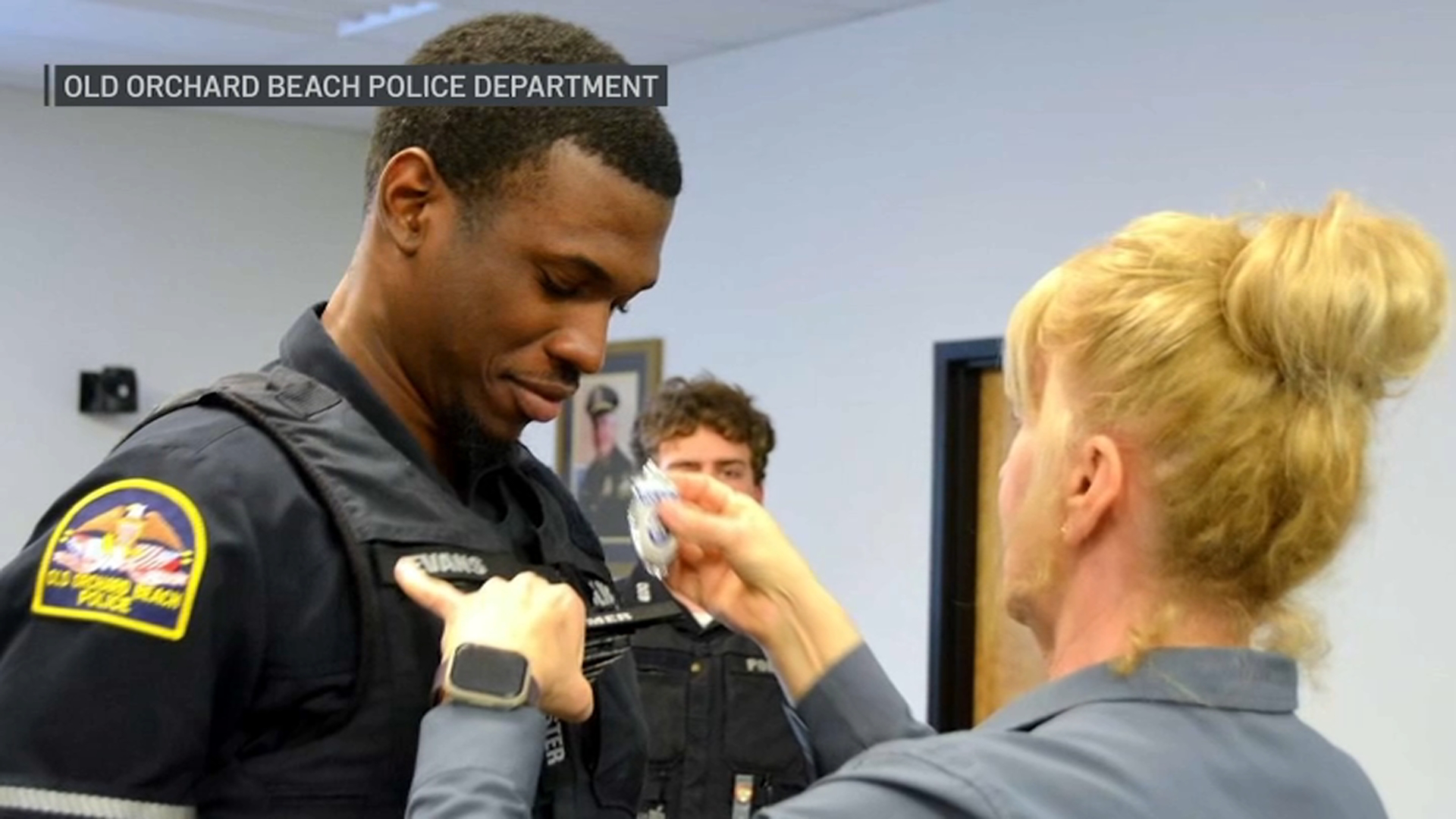A recent and controversial incident in Old Orchard Beach, Maine, has brought federal immigration enforcement and local law enforcement into a direct conflict, sparking a heated debate over employment verification systems. Police Chief Elise Chard is staunchly defending one of her reserve officers, Jon Luke Evans, who was arrested by U.S. Immigration and Customs Enforcement (ICE) last Friday, an event that has left colleagues both saddened and confused.
Officer Evans, originally from Jamaica, was apprehended by ICE after he allegedly attempted to illegally purchase a firearm, with the agency further asserting that he had overstayed his visa. This ICE arrest aligns with the broader national initiative by ICE to increase enforcement actions, a push often linked to promises of mass deportations, raising questions about the intersection of federal immigration policy and local community policing.
However, Chief Chard vociferously maintains that Evans was federally authorized to work in the United States, presenting documentation from the U.S. Department of Homeland Security (DHS) confirming his eligibility through May 2030. She has expressed profound frustration over the lack of communication from federal authorities regarding the ICE arrest, including details about Evans’ current location or legal representation, underscoring a critical gap in inter-agency information sharing.
Within the Old Orchard Beach Police Department, Officer Evans was reportedly a highly respected and valued member of the Maine police force, quickly earning the trust and admiration of his peers. His sudden arrest has significantly dispirited the department, which heavily relies on seasonal staff, like Evans, to manage increased demands during the bustling summer months, creating operational challenges for local law enforcement.
The town’s administration has joined the Maine police department in challenging federal claims, with Town Manager Diana Asanza sharply criticizing the Department of Homeland Security. Asanza contends that DHS has, by accusing the town of hiring an unauthorized worker despite their use of the E-Verify system, effectively undermined the credibility of its own electronic verification program, questioning its fundamental utility and purpose.
In response, DHS reiterated that while employers may use the E-Verify system, it “does not absolve employers of their legal duty” to independently verify legal employment status. ICE specifically stated that the Old Orchard Beach Police Department’s reliance on E-Verify to justify arming an “illegal alien” violated federal immigration law, implying a failure to conduct more thorough background checks beyond the system’s scope for officer eligibility.
The incident gained political attention, with Maine Assistant House Majority Leader Rep. Lori K. Gramlich, an Old Orchard Beach Democrat, calling for a comprehensive federal review. Gramlich’s demand focuses on the efficacy and authorization processes of both the E-Verify system and DHS systems that permitted Evans to commence employment, highlighting a systemic issue requiring legislative scrutiny in immigration law.
This case illuminates a broader tension between federal immigration enforcement mandates and the practical realities faced by local municipalities and law enforcement agencies. The discrepancies in information and the differing interpretations of legal employment verification protocols underscore the urgent need for clearer, more unified guidelines to prevent similar jurisdictional disputes and ensure operational clarity for all parties involved in officer eligibility verification and immigration law enforcement.






Leave a Reply